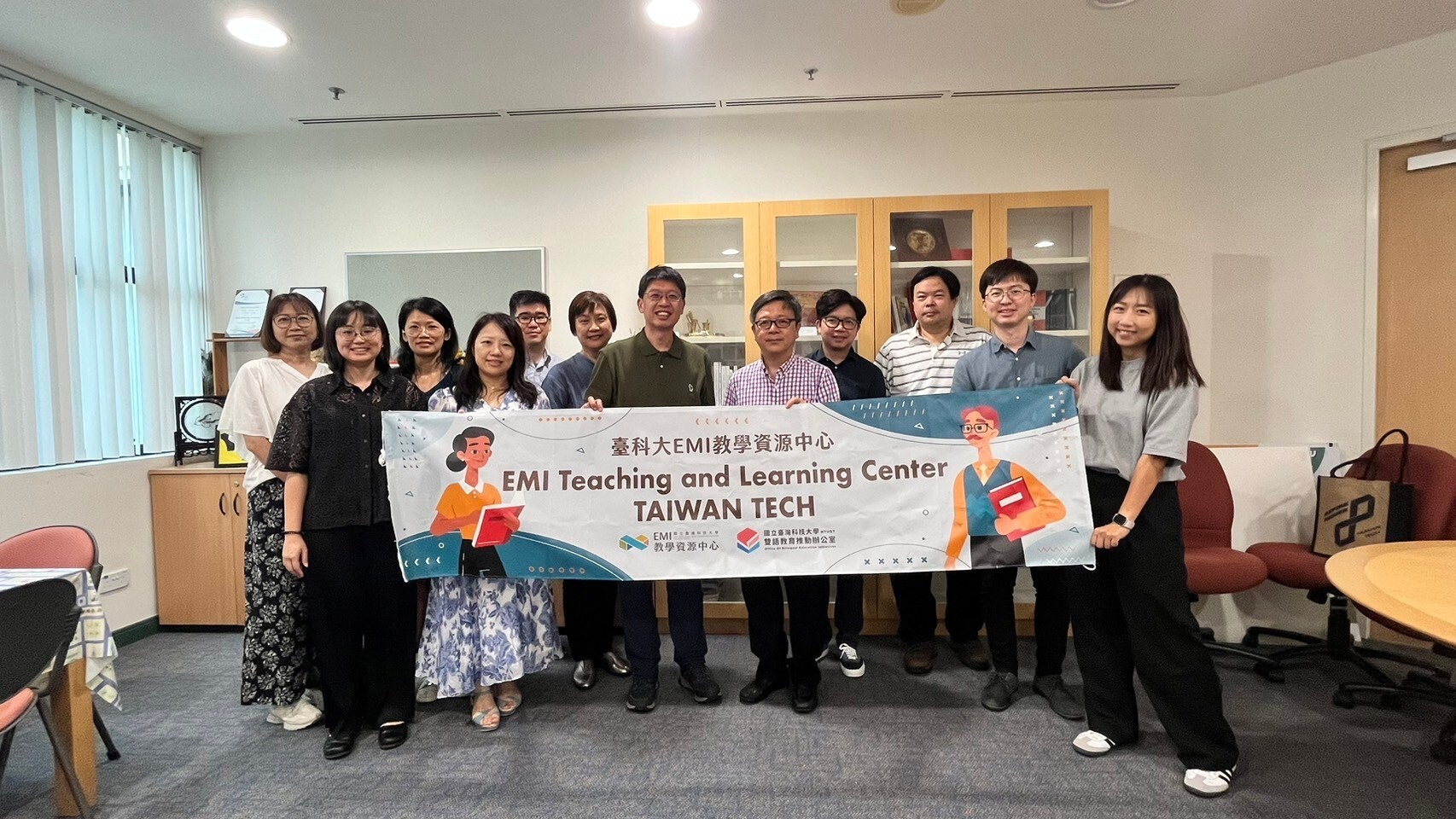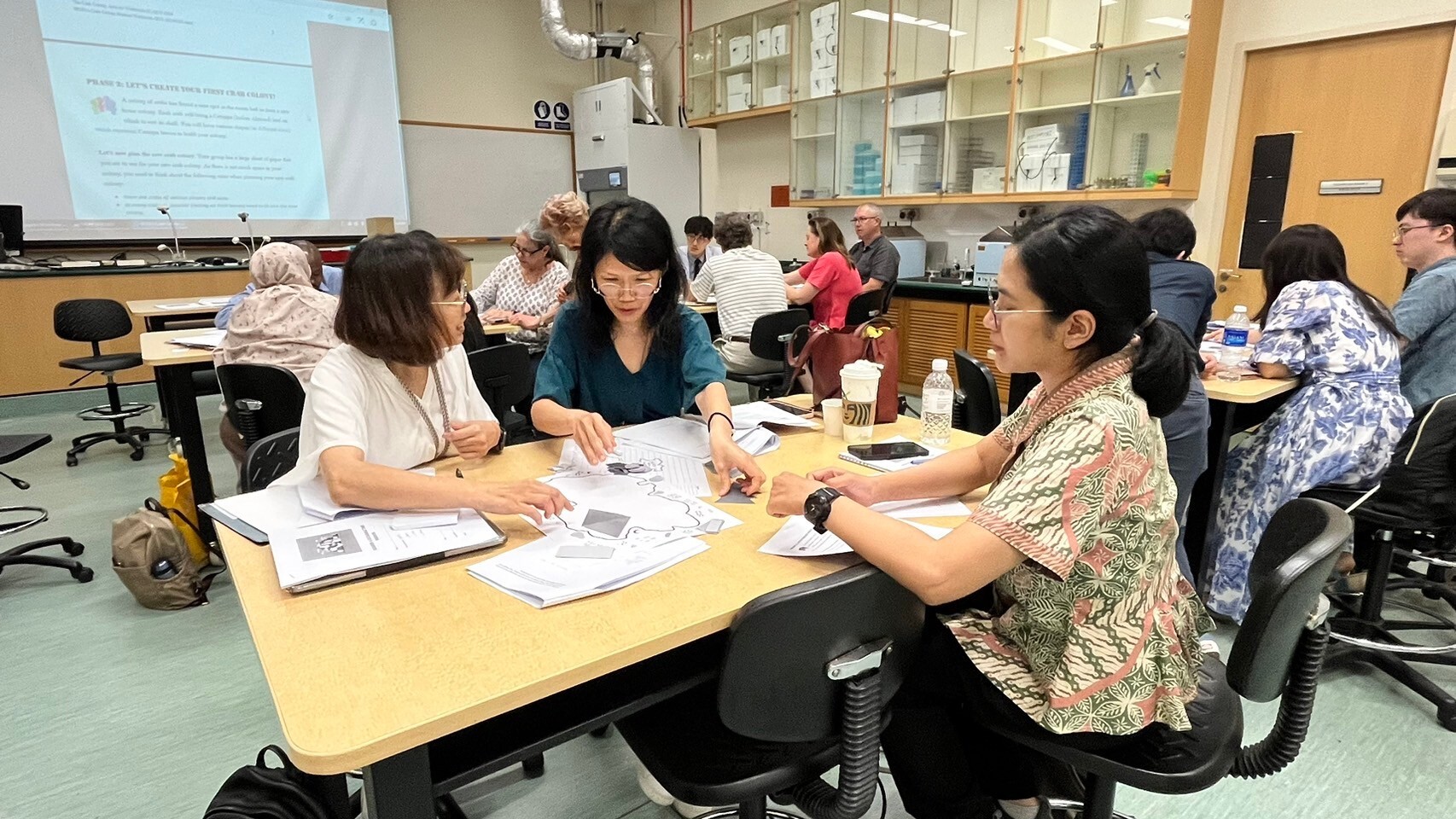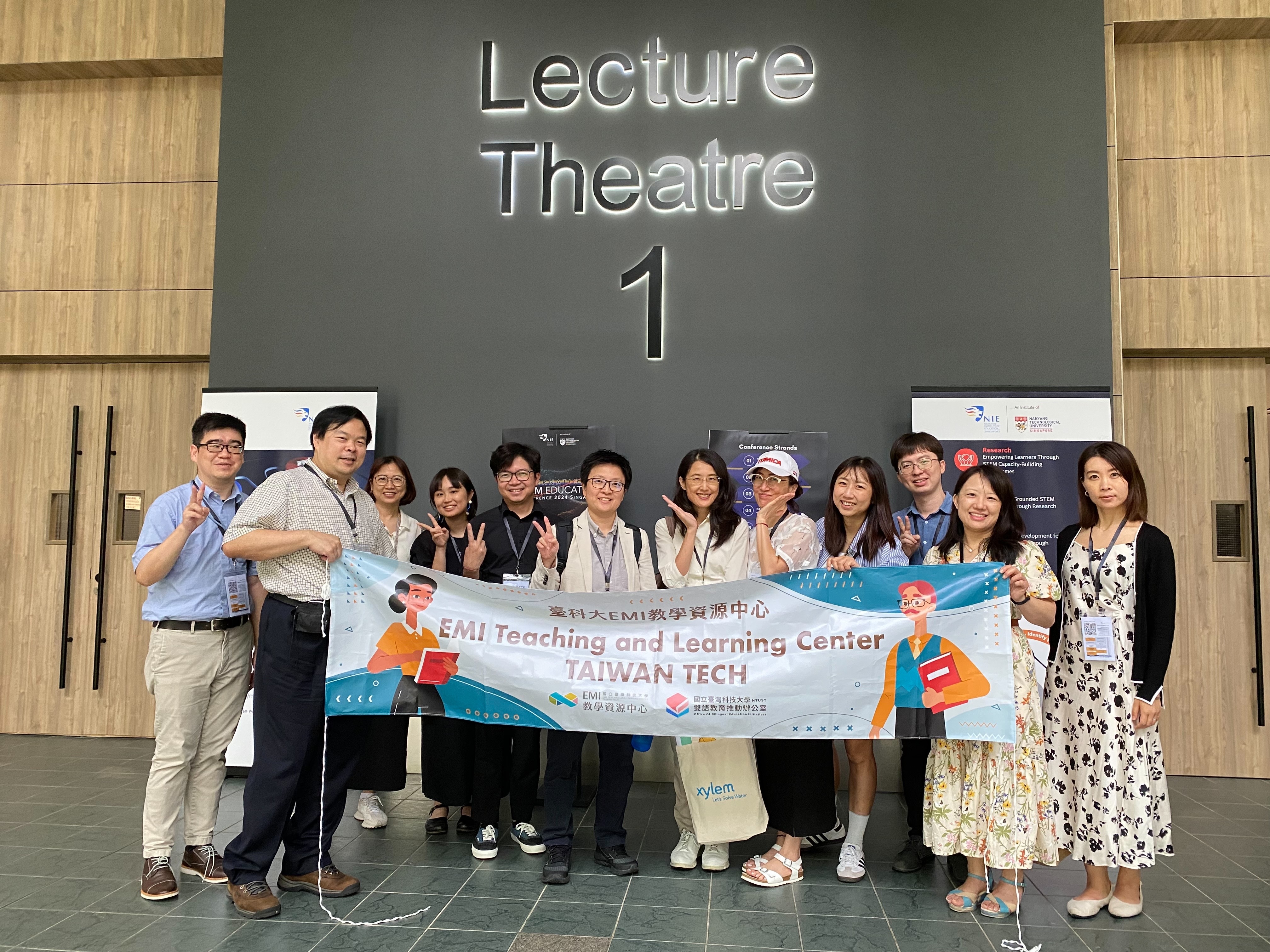Taiwan Tech faculty members gained insights from Singapore's Bilingual and STEM Education training at Nanyang Technological University.
To advance bilingual learning programs for college students, Taiwan Tech faculty members went to Nanyang Technological University in Singapore this year for off-site training to learn from Singapore’s bilingual promotion experiences and participation in international STEM (Science, Technology, Engineering, and Mathematics) education workshops and seminars. It not only enhances faculty professional development but also provides valuable international experience for Taiwan Tech's bilingual education.
To strengthen bilingual teaching capabilities, a total of 11 teachers from Taiwan Tech, along with outstanding EMI (English Medium Instruction) teachers recommended by National Kaohsiung Normal University, National Chung Hsing University, and Shih Hsin University, recently sent a delegation to the “2024 International STEM Education Conference” hosted by National Institute of Education of Nanyang Technological University. The conference focused on the latest STEM education trends and innovative teaching methods, enhancing teachers' competencies in EMI courses.

Taiwan Tech's Office of Bilingual Education Initiatives has an exchange visit with the National Institute of Education (NIE), Singapore's Nanyang Technological University (sixth from left: Professor Hsi-Lai Lin, fifth from right: Professor Ching-Ming Luo)
Additionally, Singapore's bilingual education policy has been advancing for over half a century. Taiwan Tech has engaged in in-depth exchanges with the National Institute of Education (NIE) at NTU, sharing experiences in bilingual teaching and exploring future collaborative training programs. This promotes international academic cooperation and faculty exchanges, providing students with better educational resources.
Nanyang Technological University, ranked 15th globally in the 2025 QS World University Rankings, is among the world’s top universities. The executive director of Taiwan Tech’s Office of Bilingual Education Initiatives, Shao-Ting Hung, noted that since the Ministry of Education launched its bilingual program in 2021, the number of EMI (English Medium Instruction) teachers trained has been increasing annually, with full English instruction has also begun. The office and the EMI Teaching Resource Center will focus on encouraging continuous training for EMI teachers and integrating STEM-related teaching methods tailored to technical and vocational colleges, aiming to boost the internationalization of technical and vocational talents.
As the only technical college in the country with a focus on cultivating bilingual education, Taiwan Tech selected 11 EMI teachers from its College of Engineering, College of Electrical Engineering and Computer Science, School of Management, and College of Liberal Arts and Social Sciences to participate in conferences and workshops. Experts from the US, Australia, South Korea, and other countries were invited to the event. They shared experiences in advancing curriculum across various disciplines and expected trainee teachers to apply this knowledge and practical experience of EMI in their teaching.

Taiwan Tech faculty members engaged in group practical exercises at the International STEM Education Workshop.
Assistant Professor Yu-Ling Hsu from the Department of Industrial Management, who participated in the training, noted that attending a series of keynote speeches, workshops, and discussions allowed her to gain insights from leading international education experts. She plans to apply these insights to her teaching practices and teacher community and looks forward to integrating her learnings into EMI course planning, design, and student assessment starting next semester.
The Office of Bilingual Education Initiatives and EMI Teaching Resource Center at Taiwan Tech have been actively training EMI faculty, fostering cross-institutional teacher communities, and providing one-on-one consultations and classroom observations. These efforts have received praise and recognition from both internal and external participants. In the future, they will continue to develop diverse EMI training programs and encourage ongoing professional development for EMI teachers to enhance the international competitiveness of their students.

Taiwan Tech faculty and partner school teachers took a group photo at the conference venue.
